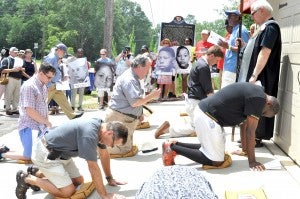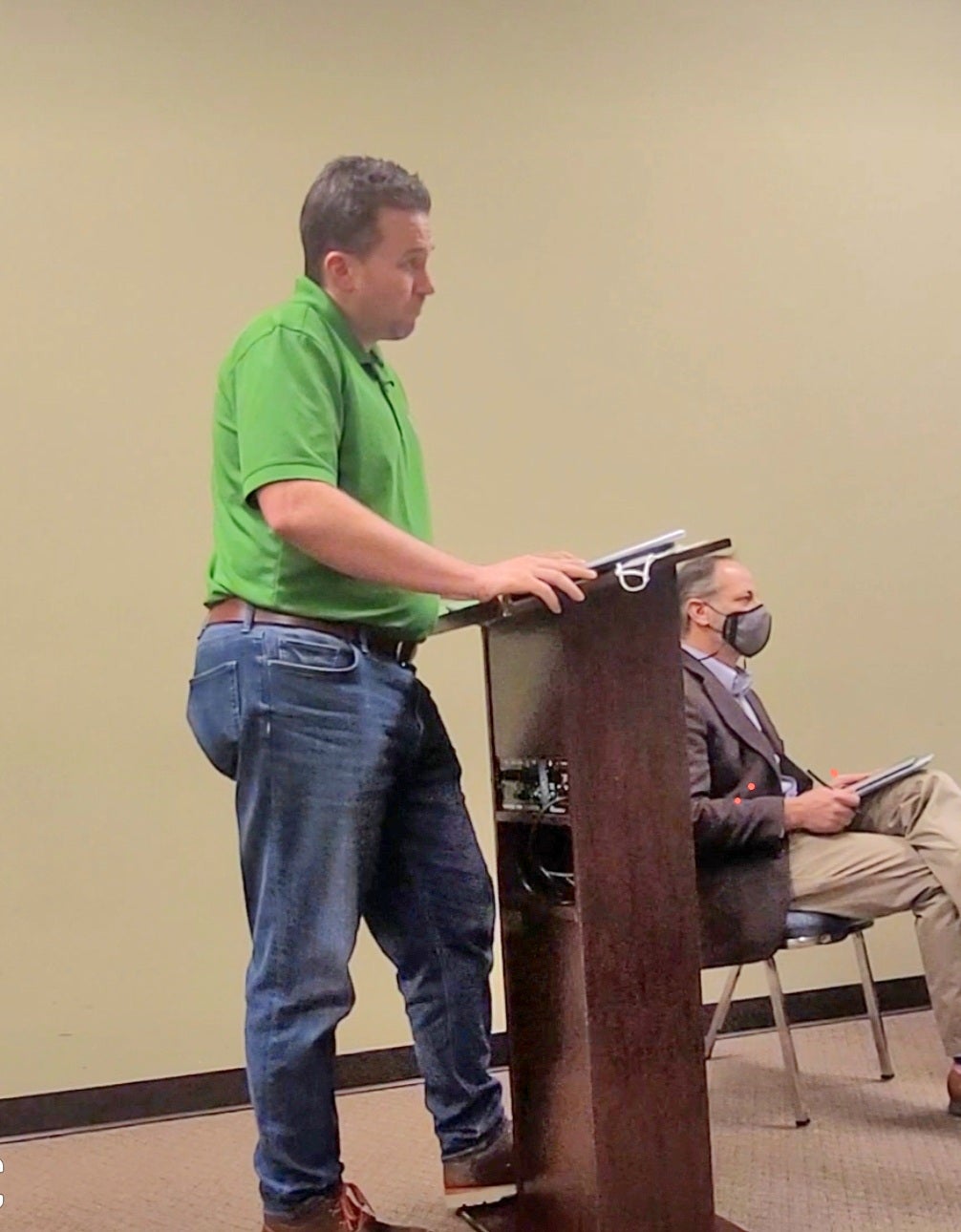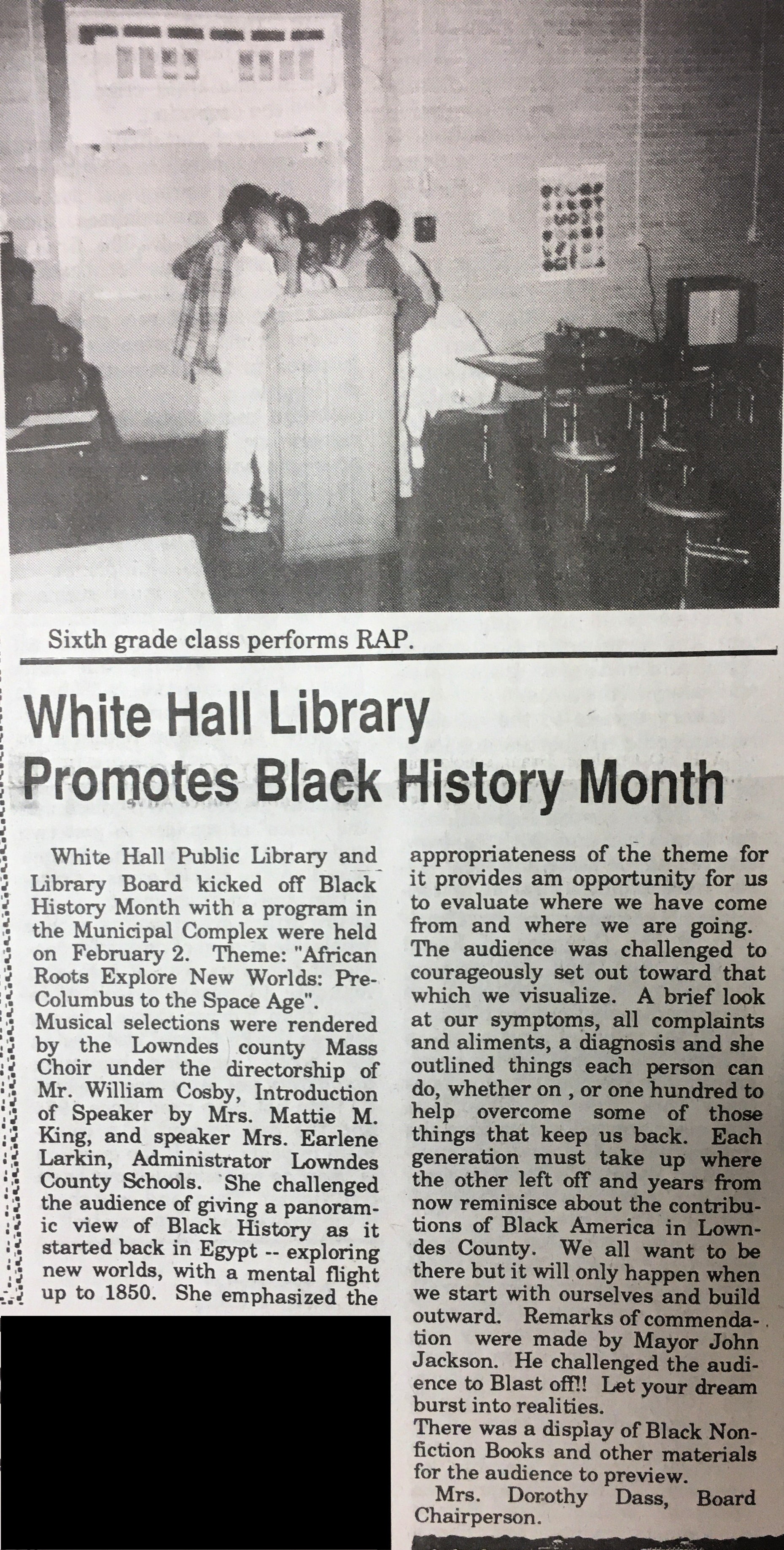Pilgrimage held Saturday in Hayneville, Daniels and Alabama Martyrs are blueprints for justice
Published 5:44 pm Saturday, August 11, 2018
|
Getting your Trinity Audio player ready...
|
By Fred Guarino
The Lowndes Signal
A passionate, but smaller crowd than usual, attended the 22nd annual Jonathan Myrick Daniels Pilgrimage held in Hayneville on Saturday, Aug. 11 to honor Daniels and 14 other known Alabama Martyrs of the Civil Rights Movement, as well as those “known only to God.”
The Rev. Ed Bacon, a retired Episcopal rector currently living in Birmingham, served as guest speaker for the event sponsored annually by the Episcopal Diocese of Alabama Commission on Race Relations and the Episcopal Diocese Central Gulf Coast Commission on Racial Justice and Reconciliation.
Bacon called Daniels and other Alabama Martyrs of the Civil Rights Movement “blueprints” for the “ever-flowing stream” of justice.
The pilgrimage included a procession to sites in Hayneville including the old jail in Hayneville where Daniels and others were held, the Cash Store where Daniels was killed and a memorial in honor of Daniels on the Lowndes County Courthouse Square.
The procession was followed by an Episcopal service in the Lowndes County Courthouse where the Rev. Bacon spoke.
Prior to the pilgrimage, a breakfast was held for local students attending the event as well as others including youngsters from the Diocese of New York hosted by the Lowndes County Board of Education Central Office.
And following the service at the courthouse, a forum was held at Hayneville Middle School on immigration issues entitled “Coming to America: Who Should We Welcome, What Should We Do?”
Bacon also signed copies of his book “8 HABITS of LOVE” at the courthouse from which proceeds went to the Diocese of Alabama Commission on Race Relations.
Food was made available at the event for pilgrims by the Stewart Family and by Refuge Temple AME Zion Church.
Daniels was an Episcopal seminarian who answered Dr. Martin Luther King Jr.’s call to come to Selma to help register blacks to vote.
After he was arrested in Fort Deposit for picketing white-only businesses, he was later released from the old Lowndes County Jail in Hayneville. Daniels and several others then went to the Cash Store in Hayneville where Daniels was fatally shot, on Aug. 20, 1965, taking a shotgun blast to prevent the death of a teenage girl named Ruby Sales.
Bacon’s last assignment as rector was All Saints Church in Pasadena, Calif., which is described as a “4,000-member multi-ethnic urban Episcopal parish with a reputation for energetic worship, a radically inclusive spirit, and a progressive peace and justice agenda.”
Prior to Saturday’s event, Bacon told the Signal, “I feel very inspired by this pilgrimage. I think it is very important to keep Jonathan’s witness alive and to teach younger generations the lessons and values of his life and witness.”
He also said, “It’s important for us older people to rededicate ourselves because the voices and the culture are very competitive with this kind of nonviolent work for justice and peace. So, in order for us to continue this witness we need to be reminded.”
Bacon said he previously attended one of the pilgrimages in Hayneville that was about the same size as that he saw Saturday. He said he understood that on the 50th anniversary of Bloody Sunday in Selma and the death of Daniels there was a huge crowd.
“But this is wonderful,” he said, “to have this many people here.”
The Rev. Fannie L. Davis, local coordinator of the annual pilgrimage, said of Saturday’s event, “I’m very excited about the turnout. It’s smaller than it normally is this time, but the weather is cool and so much better than it normally is on days like today.” She said there were also lots of new people attending.
Bacon told those in attendance at the Episcopal service, “Slavery did not end. It evolved.”
He called the shooting of unarmed blacks “state sanctioned murder.” And he said that while the courts told the Trump administration to stop separating children from their parents at the border with Mexico, more than 500 children are not, and in some cases, will never be reunited with their parents.
Bacon said whenever there was slavery or any form of supremacy, there were always theologians to support that poison in theology.
He said, “You and I are gathered here in the name of these Alabama Martyrs and Jonathan Daniels to examine ourselves to make sure we do not have that toxic theology in us and in our faith communities and in our relationships and in our systems… for Jonathan Daniels was about interrupting that toxic theology.”
Bacon said, “Jonathan Daniels and these Alabama Martyrs are our contemporary blue prints, my sisters and brothers, for the irrigation, deliverance system of how to get the justice flowing like waters of righteousness like the ever-flowing steam into the places you live and into the halls of Congress and to the oval office and to the Supreme Court and into the world.”
Bacon made three points, which he called “G, P, L.”
He said the G is “genuine.” And he said he told young students at the pilgrimage breakfast Saturday morning, the sound of the genuine inside you will lead you to find your “true self.”
He said, “Jonathan Daniels would not give a flip about your adoring him. Jonathan Daniels would want you to imitate him.”
He said the P is “proximity.” He said, “Any way that you have privilege in the world, have a moral responsibility to become proximate with those people who don’t have your privilege.”
He said Jonathan Daniels insisted on living with the black people of Selma when he came South for the Montgomery to Selma march.
He said L is the “strategy of Love.”
He said Jesus was a walking embodiment and witness of what love looks like. And, he said, “A world that is committed to fear will always come down on love and try to crucify it.”
Bacon said he added to his prayer list the names of Donald Trump and Jeff Sessions and said, “The strategy of love calls us to love everyone. And, to quote Jonathan Daniels, to make sure that the strategy of love, certainly compassion, is understood as the attempt to understand that genuine concern for the enemy. And that will accomplish a more for real integration of the racist than belligerence.”
He closed with an example of the largest organism on earth, a giant root ball with thousands of trees, but all one plant. He called it the greatest icon on the planet he knew of “oneness.”
He said, “You and I look very different. We think differently. We’re different from the people throughout the globe. Yet we are all the same. We are one.”
He called on commitment to have all the myth of separateness exorcised to leave in the spirt of Jesus, Jonathan and all the Alabama Martyrs to become instruments of God’s justice, love, proximity and genuineness and the waters of justice rolling down like an ever-flowing stream.
The Episcopal service was conducted by the Rev. Dr. Tommy Watkins, associate rector and chaplain for Canterbury Chapel in Tuscaloosa. He said he is the first black, openly gay priest in the Episcopal Dioceses of Alabama.
Also, Dick Valentine, one of the first three black graduates of VMI (Virginia Military Institute) where Daniels was the valedictorian of the Class of 1961, also addressed the group.

Attendees at the 22nd annual Jonathan Myrick Daniels Pilgrimage in Hayneville, Saturday, Aug. 11, pray at the site of the Cash Store where Daniels was killed. He and all the Alabama Martyrs of the Civil Rights movement were honored.





